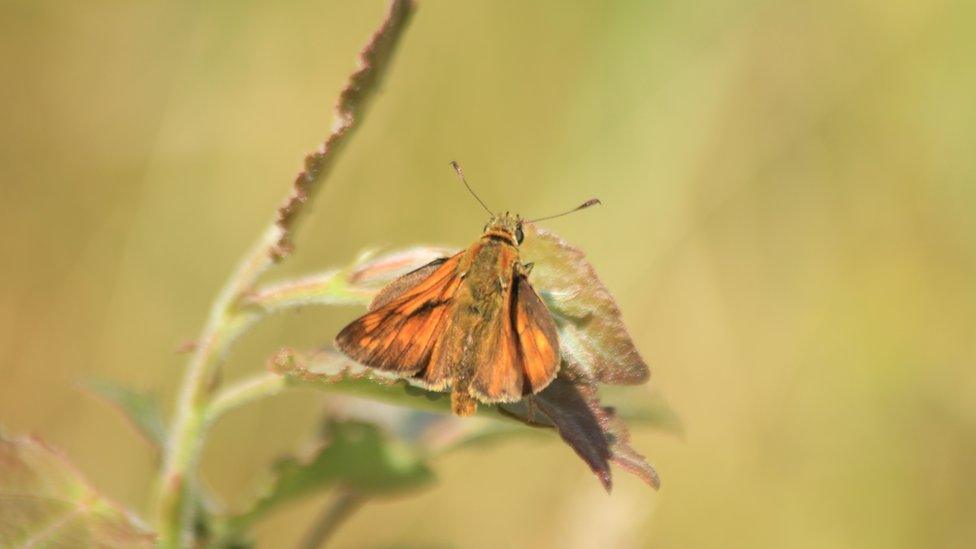How do you take a butterfly's temperature?
- Published
- comments

Thousands of butterflies in the UK have had their temperatures taken.
But it's not because they've come down with a fever.
It's because researchers from the University of Cambridge want to look into how effectively different species can warm up and cool down.
They hope they'll be able to use the results to help the insects cope with a warming climate.
How do they do it?
Butterflies are very fragile creatures so the researchers had to use very delicate equipment.
To make sure the butterflies weren't harmed, they used tiny temperature probes - which look like a very thin wire - just 0.25 millimetres wide.
Experts caught the butterflies in nets and quickly touched the end of the probe on their bodies.
In just five minutes, they were able to find out the temperature of the butterflies, whether they were male or female, and the condition of their wings.
They managed to test over 2,000 butterflies in total with lots of them being different species.
Why did they do it?
It's all to with protecting butterflies as the climate changes and the world gets warmer.
Different species of butterflies can handle heat in different ways. Some butterflies are really good at heating up in colder temperatures and cooling down in warmer temperatures. Others are not.
Dr Andrew Bladon, who led the research, said: "On a cold day, species good at heating themselves will be active earlier - feeding, mating and defending their territory.
"Butterflies able to control their body temperature... were less likely to be affected by climate change, allowing scientists to predict which would be vulnerable", he said.
- Published23 July 2018
- Published11 April 2018
- Published25 May 2018
